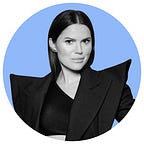WE KNOW SO MUCH, AND YET WE KNOW NOTHING.
To understand how little we know about ourselves and the world, let’s remember that this year’s Nobel prize for physics was awarded for discoveries about black holes.
This subject is so complex and uncharted that even Einstein doubted the existence of black holes. But in 1965, ten years after the genius’ death, Roger Penrose published a groundbreaking scientific paper. In it, he produced the mathematics that showed how large stars collapse to form black holes. Which speaks to the idea that “the formation of black holes serves as reliable proof of the theory of general relativity”.
This discovery opened a new direction in the study of supermassive compact objects. But these objects continue to pose many questions, impelling further research.
We think that we’re now at the pinnacle of human intelligence, but in fact we’re just one stage in our development. Space is still a long way off. To move nearer to solving the enigma, we need to maximally hone our brains and work on our intellectual, physical, and emotional development. We won’t, unfortunately, have the time to find the answers to all our questions (do we really need to?), but we still have many discoveries and amazing adventures before us in our lifetime. And the quicker we train our brains to understand, feel, perceive, foresee and sense more, the more interesting our future will be.
I suggest not putting off your path to self-development for another minute — download the digital assistant Human Cosmos App now. And who knows, maybe after years of training and honing your intellect, it’ll be you who gets the Nobel prize. Your best friend will come running in the middle of the night, banging on your door screaming “Wake up! You won the Nobel prize!” And you’ll be a sleepy, happy, and still ever so slightly naive person.
